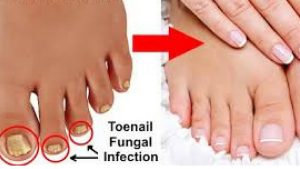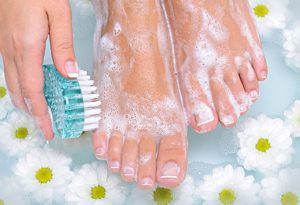Understanding Thick Toenails: Causes and Concerns
Thick toenails, medically known as onychomycosis or fungal nail infection, can be a source of discomfort and embarrassment for many individuals. Understanding the underlying causes and potential concerns associated with Thick Toenail Tactics is essential for effective management and restoration.
Common Causes of Thick Toenails
Thick toenails can result from various factors, including:
- Fungal Infections: Fungal overgrowth, often due to poor foot hygiene or exposure to moist environments, can lead to thickened, discolored nails.
- Trauma: Injuries to the toenail bed or repeated trauma from ill-fitting shoes can cause thickening and deformities.
- Age: As individuals age, toenails may naturally thicken due to changes in nail structure and decreased circulation.
- Underlying Health Conditions: Certain medical conditions such as diabetes, psoriasis, or peripheral vascular disease can contribute to toenail thickening.

Potential Concerns and Complications
While thick toenails may seem like a cosmetic issue, they can pose significant concerns, including:
- Pain and Discomfort: Thickened nails may exert pressure on the surrounding skin, leading to pain, discomfort, and difficulty wearing shoes.
- Increased Risk of Infection: Fungal infections underlying thick toenails can spread to adjacent nails or the surrounding skin, increasing the risk of secondary infections.
- Self-Esteem and Confidence Issues: Individuals with thick toenails may experience embarrassment or self-consciousness, impacting their confidence and quality of life.
Strategies for Restoration and Confidence
1. Proper Foot Hygiene
Maintaining good foot hygiene is crucial for preventing and managing thick toenails. Follow these tips:
- Regular Cleaning: Cleanse your feet daily with mild soap and warm water, paying attention to the toenails and nail beds.
- Keep Nails Trimmed: Trim toenails straight across and file the edges to prevent ingrown nails and reduce thickness.
- Dry Thoroughly: Ensure your feet and toes are completely dry, especially between the toes, to prevent fungal growth.

2. Footwear Considerations
Choosing appropriate footwear can alleviate pressure on thick toenails and promote comfort. Consider the following:
- Proper Fit: Opt for shoes with ample toe room to prevent crowding and friction on the nails.
- Breathable Materials: Select shoes made from breathable materials to minimize moisture and reduce the risk of fungal infections.
- Avoid Tight Styles: Steer clear of tight-fitting shoes or high heels that can exacerbate toenail thickening and discomfort. Explore About (Tongue Color)
3. Topical Treatments
Various over-the-counter and prescription topical treatments are available for managing thick toenails:
- Antifungal Creams: Apply antifungal creams or ointments directly to affected nails to target fungal infections and reduce thickening.
- Keratolytic Agents: Products containing urea or lactic acid can help soften and thin thickened nails, making them easier to manage.
4. Professional Interventions
In severe cases or persistent thickening, consider seeking professional interventions:
- Oral Medications: Oral antifungal medications may be prescribed by healthcare providers to treat stubborn fungal infections and improve nail health.
- Laser Therapy: Laser treatments can effectively target fungal infections and promote nail restoration with minimal side effects.

Conclusion
Thick toenails can be both a cosmetic concern and a potential indicator of underlying health issues. By understanding the causes, concerns, and effective management strategies outlined in this article, individuals can take proactive steps towards restoring nail health and regaining confidence in their feet.












